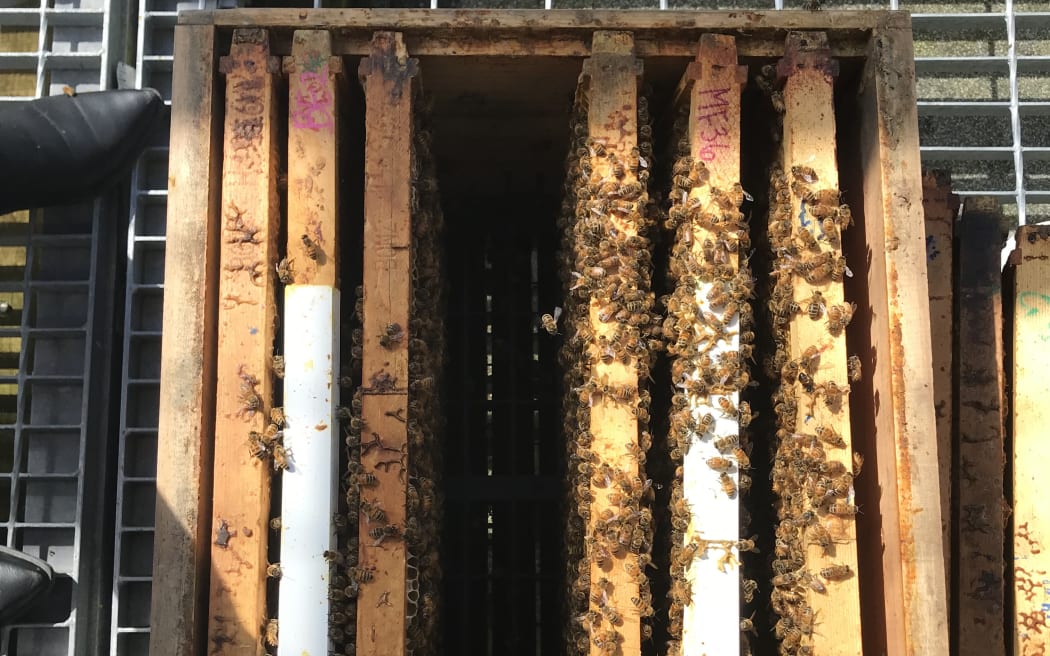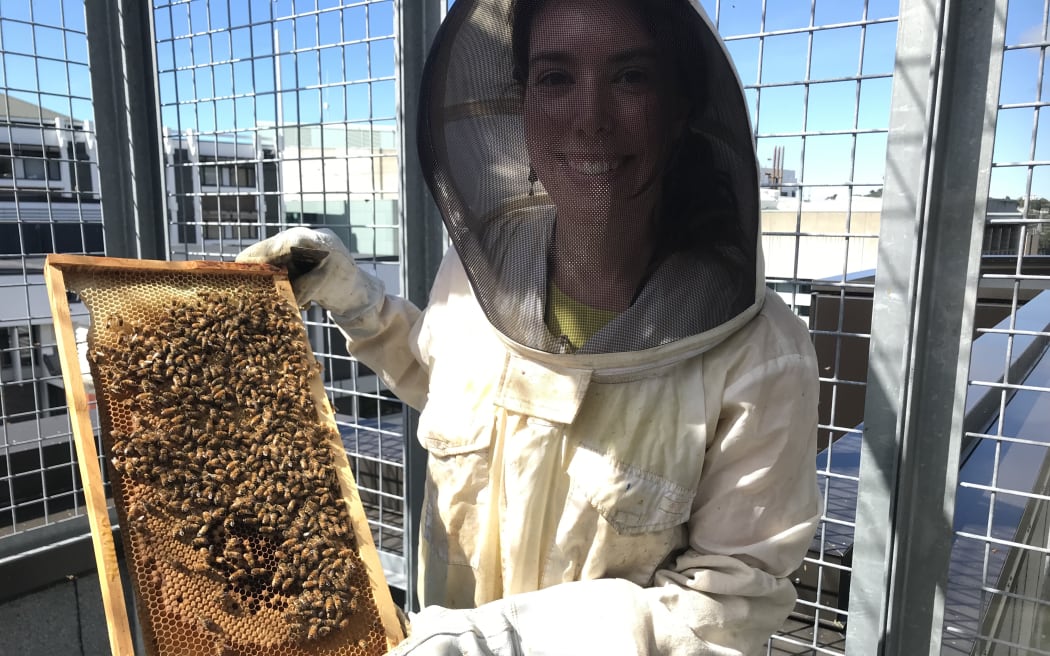Varroa destructor mites are bad news for honeybees.
Not only do they parasitise the bees by chewing on a vital organ called the fat body, but they also introduce problematic viruses to the hive – such as deformed wing virus, which does exactly what it says on the tin.

Beehive on the campus of Te Herenga Waka Victoria University of Wellington. Photo: Claire Concannon / RNZ
Follow Our Changing World on Apple Podcasts, Spotify, Stitcher, iHeartRADIO, Google Podcasts, RadioPublic or wherever you listen to your podcasts
Now a global problem, beekeepers worldwide must treat for varroa mites several times a year just to keep their numbers in check. They mostly use pesticides, which can have damaging effects on the bees and environment. Varroa mites are also beginning to develop resistance to pesticides, but a new treatment method may be just on the horizon.
A research lab at Te Herenga Waka Victoria University of Wellington is working with a US biotechnology company to investigate how this new treatment works, and what benefits it might bring for New Zealand beekeepers.

Zoe Smeele with a brood frame. Photo: Claire Concannon / RNZ
To learn more:
-
Listen to the full episode on Our Changing World.


